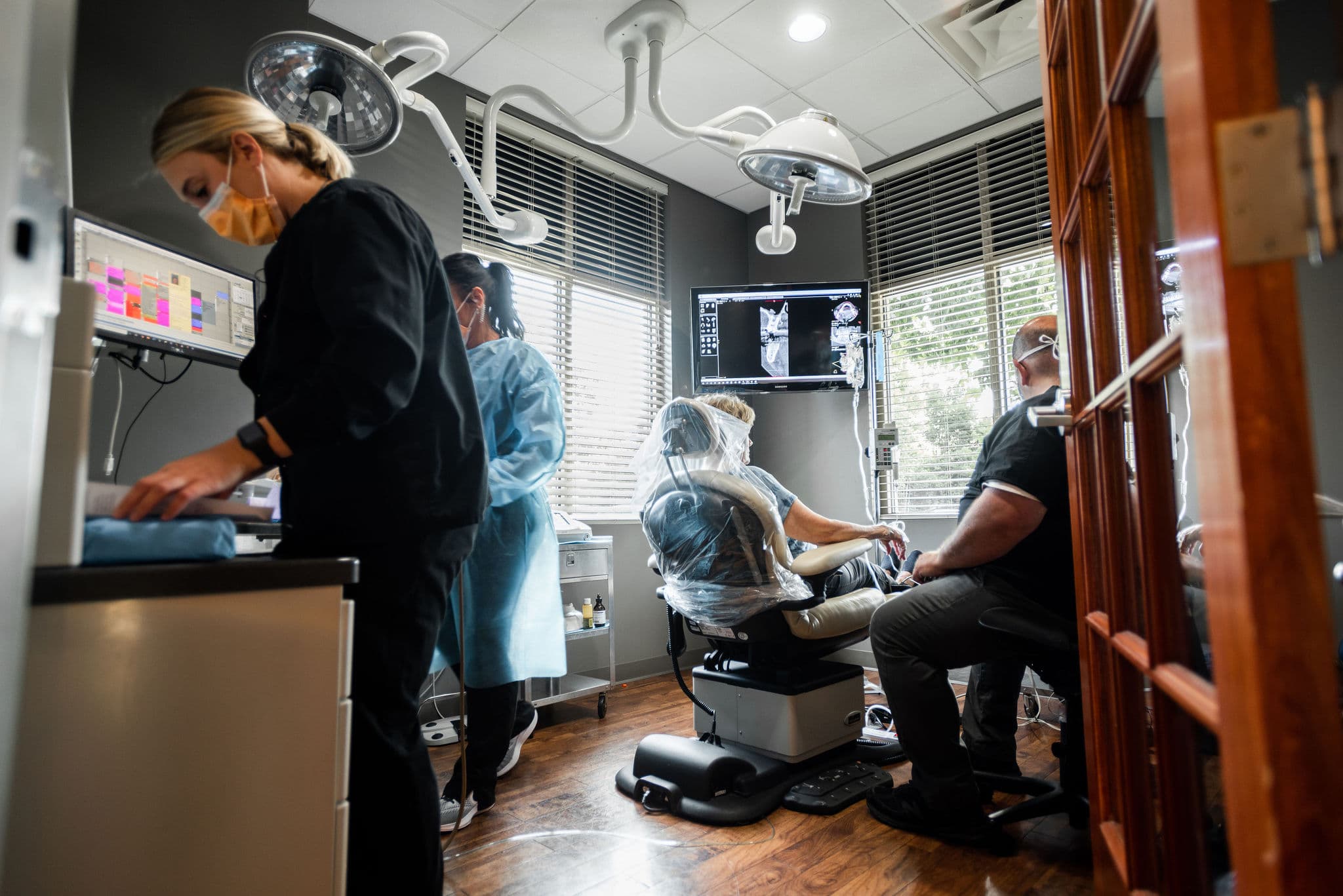
Tooth Extraction Columbus OH
"Because we believe that great dentistry and great health affects your every smile, every conversation, every meal, and every kiss profoundly"
Tooth Extraction Process
Most tooth extraction procedures can be performed in a few dental appointments. At your initial consultation, your dentist will determine if tooth extraction is required, and if so, what type of procedure is best for you.
If your dentist has determined that you need to have a simple tooth extraction performed, they will provide you with a local anesthetic which will numb your jaw, nerves, and tissue. Once these areas have been properly numbed, your dentist will use a special tool to remove the affected tooth. These procedures are generally taken care of very quickly and do not require a long time to heal.
If you are scheduled to have a surgical tooth extraction and/or oral surgery, the process involved will be a bit more complicated. If you are scheduled to have a wisdom tooth removed, your dentist will provide an aesthetic that matches your comfort level. Once the anesthetic has begun to work appropriately, your dentist will begin to surgically remove the tooth or teeth in question, suturing any gaps that remain as they do so, in order to minimize the bleeding and help begin the healing process.
During the process of extracting the tooth, patients will feel a sense of pressure, which results from your dentist rocking your tooth, which widens the socket and allows for easier removal. The good news is, there is very little pain associated with this part of the procedure.
Post-Procedure Care
Following the tooth extraction procedure, it is important that you follow your dentist’s post-procedure care instructions. It is important to avoid eating any hard or tough foods, abstain from smoking, and limit physical activity for a few days to ensure that your jaw and gums heal as quickly as possible. It is also a good idea to stick to liquids only and to avoid brushing your teeth for the first 24 hours following your procedure.
It is important to be aware that there are some common ailments associated with the healing process. One of the most common issues that patients recovering from a tooth extraction will notice is that there is some bleeding. The best way to address this is to place gauze over the socket until the bleeding subsides.
Swelling is another common side effect that is best addressed by placing ice packs on your face in cycles of 10 minutes on and 20 minutes off. If you repeat this cycle as often as feels necessary for the first 24 hours, you should notice significant improvement.
If the pain remains too uncomfortable, you can also take common over the counter medications, such as ibuprofen or acetaminophen.
Once your mouth has fully healed, which usually takes around one to two weeks, you will not have to restrict your diet or eating habits, although it is important that you continue to practice good oral hygiene practices.
Authentic
Patient reviews
Patient reviews
Join us because we know that trustworthiness is a perception, not a fact.
What Happens If I Don’t Follow These Practices?
If you do not follow these best practices, it is possible that you may develop issues such as dry sockets. Dry sockets develop when the extraction area fails to form a blood clot where the tooth has been extracted. When this occurs, the healing process becomes significantly delayed. When this happens, patients will begin to feel throbbing pain, generally three or four days after the procedure. This pain can range from being moderate to severe and can also cause a bad taste to form in the mouth.
If you are experiencing this type of discomfort following your procedure, please contact your dentist to schedule a follow up appointment.
What are the Costs Associated With a Tooth Extraction?
The final cost of a tooth extraction procedure will ultimately depend upon the type of dental extraction that is performed. Prior to scheduling the procedure, your dentist will review your treatment options with you, and then our staff will be happy to discuss the fees associated with having the procedure.
We are committed to helping you receive the dental care you need in a manner that fits your budget.
High Quality Care You Can Trust
At Stoner Periodontic Specialists, we are committed to providing patients with high quality, attentive and individualized care in order to promote complete oral health through wellness and rejuvenation. We achieve this by utilizing cutting-edge technology, state of the art procedures and traditional practice to treat patients and exceed expectations.
If you would like to meet our team, take a tour of our facilities, or discuss this procedure with our knowledgeable staff, please contact us today!





